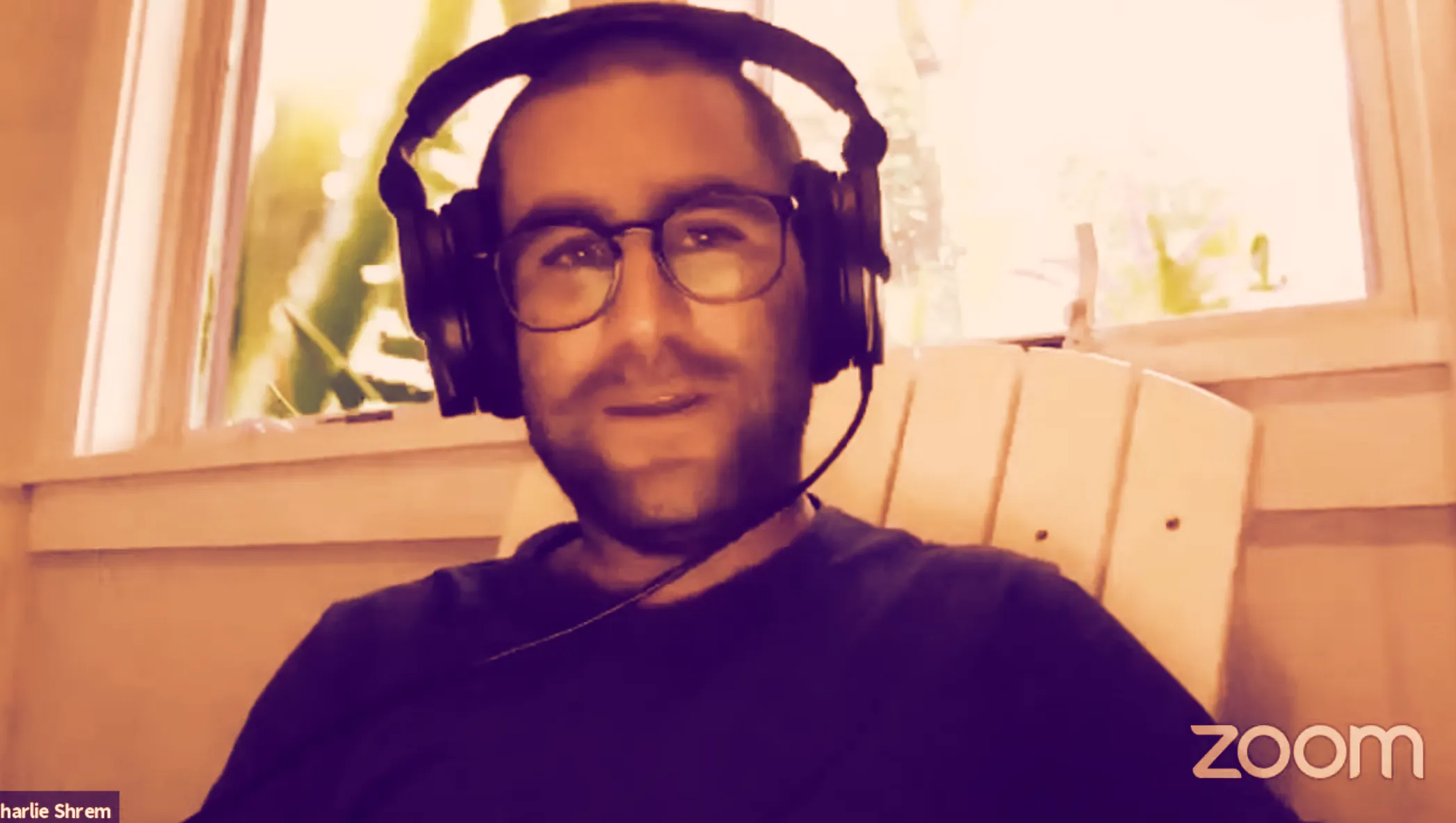In brief
- In 10 days, the bitcoin mining reward will drop to 6.25 BTC.
- At the same time, the US is pumping trillions into the economy.
- Combined, both these events could drive up the price of BTC, says Charlie Shrem.
The Bitcoin halving is mere days away and Bitcoin prices have been surging. Meanwhile, US dollars are getting pumped into the economy. So what's the better investment: Bitcoin or dollars? If you ask Charlie Shrem, he’ll tell you Bitcoin.
“The dollar is going down,” Shrem, one of the earliest of the Bitcoin entrepreneurs, said at Virtual Blockchain Week last night. “Therefore, the value of Bitcoin has to go up. So it is the people holding dollars who are the ones who are getting screwed.”
10 days left until next #BitcoinHalving pic.twitter.com/Drn1y73NDY
— Bitcoin Halving Countdown (@Bitcoin_Halving) May 1, 2020
What’s he talking about? Recently, the US government signed an unprecedented $2 trillion stimulus package to keep the economy afloat during the novel coronavirus pandemic. All that money is arguably backed by nothing, beyond the good graces of the United States of America.
At the same time, the Bitcoin halving, an event that happens every four years, is around the corner. And by Shrem's reckoning, it's a signal feature of Bitcoin—a capped money supply—that makes the digital currency truly valuable.
On May 12, the Bitcoin mining reward—what people who run the system get paid for their computing efforts—will drop from 12.5 BTC to 6.25 BTC, to reduce the amount of new Bitcoin entering into the supply. Ahead of the halving, the price of BTC has shot up 30% in the last month to its current price of $8,700.
Mainly, Shrem believes, that's due to the sinking value of the dollar. “The value of Bitcoin has to go up, in relation to the dollar,” he said. “The ones who are holding bitcoin, now have double the purchasing power.”
The argument for Bitcoin
Shrem is generally considered by Bitcoin maximalists to be one of the community's icons, pioneers, and martyrs. In 2014, when he was 24, he was charged with money-laundering criminals' Bitcoins on Silk Road, a black market for illicit goods, among other things. Silk Road was one of the first popular uses of Bitcoin.
More recently, he founded cryptocurrency “intelligence service” CryptoIQ. He also hosts a crypto podcast “Untold Stories.”
Now, Shrem is popular on the speaking circuit, where he continues to evangelize for Bitcoin. During his appearance last night, he was more bullish than ever, thanks to the perfect storm of the pandemic and the pending halvening.
“It is crazy we have a halving during coronavirus,” he said at the virtual conference last night.
Since mid-March when the lockdowns began, 30 million Americans have filed unemployment claims. “All these people are starting to get their unemployment benefits, probably when they are going back to work, anyway,” Shrem speculated, suggesting that plenty of extra cash will soon be sloshing around in the system.
He thinks it could lead to a bull run.
Stock market is for gamblers
In Shrem's eyes, the stock market is a metric for the government to manipulate, so people will think that everything is okay. “I don’t own any stocks for that reason,” he said.
As evidence, he finds it ludicrous that at a time when so many people are out of work, the stock market is hitting all-time highs. “How is this something we can correlate to how the economy is actually doing?” he asked.
When one of the virtual conference hosts pointed out to him that the Bitcoin market is also manipulated, his response was basically, yes, but most Bitcoin traders are largely aware of the problem. After all, stories of whales manipulating BTC’s price are rampant.
Plus, he said, whenever anyone asks him about investing in crypto, his mantra is: Be careful. It’s crazy. "If someone tells me they want to get into crypto, I tell them it is a high risk, crazy, volatile," Shrem said.
By contrast, if you call a friend about the stock market, they are likely not going to tell you that, he said. That’s because the stock market is generally pitched as a level-headed investment.
Memories of house arrest
After pleading guilty to aiding and abetting the operation of an unlicensed money-transmitting business in 2014, Shrem spent 18 months in house arrest, unable to leave his parent’s Brooklyn home without a judge's permission. He also spent time in federal prison.
When asked how he was dealing with the current lockdown, Shrem, who is now married, and living in sunny Florida, compared it to that period of being under house arrest.
“My wife and I had to adjust to eating at home more often, not being able to go out,” he said. “When it first happened, we went into a full house-arrest mode. You can’t look at it as being stuck at home.”
He has been taking notes on peoples’ reactions to the lockdown around the country. Some states are pushing for more personal liberty and freedom, he said. (In Michigan, hundreds of people have broken the emergency orders to protest.)
And then, he said, reflecting back on his old stomping grounds, “you have places like New York where they love the government. They love Big Brother.”
Disclaimer
The views and opinions expressed by the author are for informational purposes only and do not constitute financial, investment, or other advice.

